Share
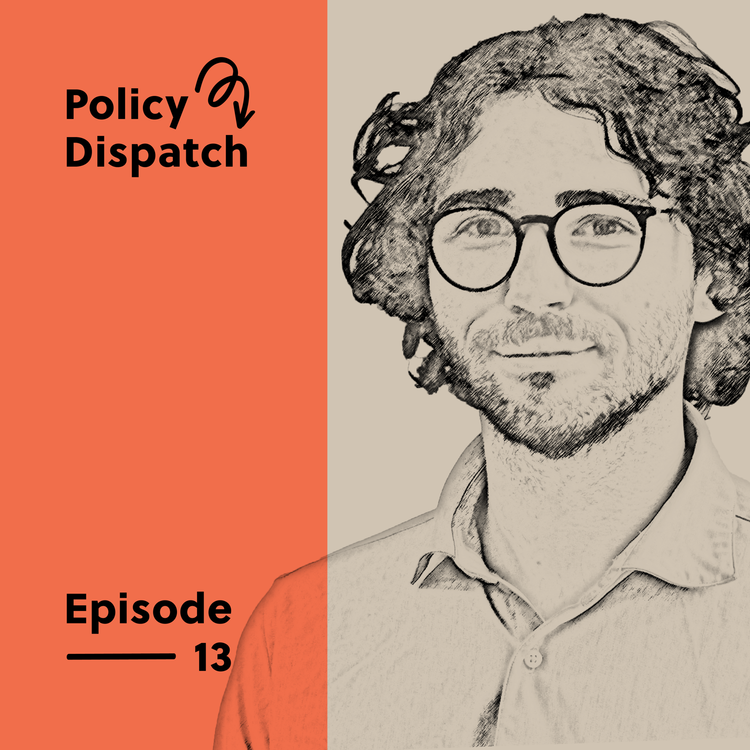
Policy Dispatch: The FORESIGHT podcast on the policies underpinning the energy transition
What’s in store
Season 1, Ep. 15
•
More clean power is being added to energy mixes on a daily basis, but it does not matter how many wind turbines or solar panels are installed; the electrons still need to reach homes and businesses. Supply cannot always match demand, either in quantity or timing, so that is where storage comes in. Whether it is hydropower dams, grid batteries, molten salt or the power of gravity, storage — both conventional and innovative — is gearing up to play an absolutely fundamental role in decarbonised energy systems.
The road ahead is by no means a smooth one, though, as many hurdles stand in the way of 24/7 on-demand green electricity. Developers need to establish strong business cases to support their storage ambitions, and some policies are already helping to make that a reality. More changes are needed to unlock a storage boom and also establish the technology as a safeguard against the price spike crisis that happened towards the end of 2022. Helping to turbocharge this week’s Dispatch is Thomas Lewis from the European Association for the Storage of Energy.
Enjoy the dispatch!
If you have any thoughts or questions about anything that has been discussed in this week’s episode, you can reach us at our Twitter accounts:
Thomas Lewis: https://twitter.com/_thomaslewis?lang=en
Sam Morgan: https://twitter.com/SamJamesMorgan
@Policy Dispatch: https://twitter.com/PolicyDispatch
FORESIGHT Climate & Energy: https://twitter.com/FORESIGHTdk
Listen and subscribe to Policy Dispatch wherever you get podcasts. Follow us on Twitter at @Policy Dispatch or email us at show@policydispatch.com. You can also find FORESIGHT Climate & Energy on LinkedIn.
Show notes:
FORESIGHT Policy Section: https://foresightdk.com/category/policy/
TRY FULL ACCESS TO FORESIGHT CLIMATE & ENERGY FOR €1 A DAY
Join over 100,000 policymakers, energy experts in business, finance, and academia, city leaders, and leading NGOs in having access to FORESIGHT Climate & Energy
GET YOUR 30-DAY TRIAL: www.foresightdk.com/subscribe/.
More episodes
View all episodes
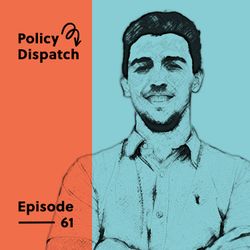
60. Reviewing Britain’s power market review
30:02||Season 1, Ep. 60Download our award-winning app and enjoy access to all exclusive features. Click here to access on Apple or Android.“This isn’t a new concept. This isn’t a revolutionary, ground-breaking concept. It’s just something that is kind of a repackaging of a market that’s not doing what it’s supposed to.” The United Kingdom has finally wrapped up a long-lasting review of its electricity market, opting to preserve the existing nationwide model instead of switching to a regional-based system. Reforming the market is essential to meet climate targets, add more renewables into the system and, ultimately, allow the government to hit its clean power goal in 2030. But it is still not entirely clear how the existing system will now be reformed. We know that moving to a so-called zonal system will not happen under this review, but there is still a lack of clarity on which policies will be adopted. “We’re going to push all these levers, we’re going to try and move things around, and instead of actually fundamentally fixing the problem at the source, driving down bills, we are essentially playing Jenga. We are removing blocks from the bottom, repackaging them and putting them back on the top. All the while eroding the integrity of the system so that one thing could just knock it all over.” Joining Sam on this episode of the Policy Dispatch is Sam Whitworth, energy market regulation adviser at British energy company Octopus. Download our award-winning app and enjoy access to all exclusive features. Click here to access on Apple or Android.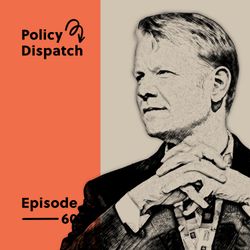
59. Electrify this, electrify that
24:59||Season 1, Ep. 59Download our award-winning app and enjoy access to all exclusive features. Click here to access on Apple or Android“We need to drive electrification in the EU. We are badly lagging behind China but we have done the hard work over the last 20 years to make really rapid electrification possible.” Electrification offers a viable path towards decarbonisation. If processes can be switched up to run on electrons, then renewable power generation can be hooked up to a wide range of previously polluting industries and sectors. Big leaps forward in terms of what can be electrified but also how much of the economy can be electrified have been made but more progress is needed. More clean power sources, more electricity network infrastructure and more investment are all, of course, crucial. “Without question, electrification is the single lever that will deliver us the furthest along the lines for our 2040 targets. There’s no question.” Joining Sam on this episode of the Policy Dispatch is Adrian Hiel, director of the Electrification Alliance, a group that advocates for electricity to play a crucial role in decarbonising Europe’s economy. Adrian shares his view on why getting more cheap electrons into the European energy system is only a good thing, what needs to be done to turbocharge that process and why electrification might only be gradual at first, but ultimately will happen at pace. Enjoy the show! For more on electrification, check out: The Electrification Alliance The International Energy Agency’s 2025 report on electricity. Download our award-winning app and enjoy access to all exclusive features. Click here to access on Apple or Android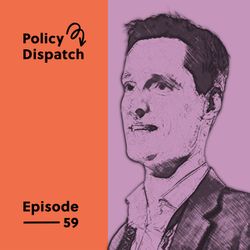
58. German energy storage’s pivotal moment
29:34||Season 1, Ep. 58Download our award-winning app and enjoy access to all exclusive features. Click here to access on Apple or Android.“I like to say that the German storage market doesn’t work because of policy but despite policy sometimes! Lars Stephan,” Senior Manager Policy and Market Development, Fluence. Germany’s energy storage market has been up and running for a decade and is just now starting to really ignite and cross some exciting milestones. More and more projects are starting to be announced, construction is beginning and the German grid is starting to feel the benefit of having power storage backup when it is really needed. “So if we look at the project scale at the moment, we have about 2 to 2.7 GWh of utility-scale energy storage projects deployed in Germany. And we have about 6.6 GWh of projects under construction that will come online by January 2027.” Lots of policy changes are under consideration that will impact this market. From removing grid fee exemptions and setting up capacity markets to offering inertia services revenues. If Germany gets it right, the sector could boom. If it gets it wrong… “Like with inertia, energy storage can be part of the solution, but you need to let us be part of the solution, by defining some kind of market mechanism that provides a price signal for energy storage. So it knows what to do, what not to do, in order to support the grid.” Joining Sam on this episode of the Policy Dispatch is Lars Stephan, head of policy and market development at energy storage software developer Fluence. Enjoy the show! For more on storage, check out: Rystad Energy’s global storage outlook; ‘Storage needs a loud revolution’, an audio oped by SolarPowerEurope; ‘Playing the long-duration storage game’, episode of The Jolt Stay tuned for a new in-depth article on storage as well!Download our award-winning app and enjoy access to all exclusive features. Click here to access on Apple or Android.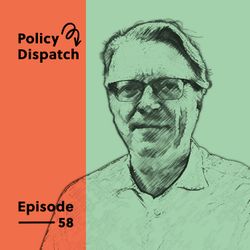
57. Building renovation optimism
26:21||Season 1, Ep. 57Download our award-winning app and enjoy access to all exclusive features. Click here to access on Apple or Android.Central and Eastern Europe needs to upgrade its building stock to plug leaks and reduce energy consumption. Some of the challenges the region faces are similar to those in other countries, some are more specific. Rules and regulations are slowly but surely being adopted in this part of the world, funding streams are coming online and renovation support schemes are being designed. Plenty of challenges like access to skilled labour still need to be addressed but all of the seeds have now been planted, hopefully a bumper harvest of higher renovation rates can be collected. Adrian Joyce, secretary-general of Efficient Buildings Europe, joins the show to discuss how policies have evolved over the last two years and whether he is indeed optimistic about the sector’s progress. This episode was recorded live at the biannual C4E Forum in the Croatian town of Cavtat. To listen to the previous episode recorded in 2023 during the last edition, click here. Enjoy the show! Download our award-winning app and enjoy access to all exclusive features. Click here to access on Apple or Android.
56. Finding the right tool to boost cross-border ties
28:34||Season 1, Ep. 56Download our award-winning app and enjoy access to all exclusive features. Click here to access on Apple or Android.Europe’s energy market is a marvel of the modern world, connecting more than 600 million people together. It has helped increase energy security and is boosting the rollout of green and cheap power. But the job is not done yet. More cross-border and regional cooperation is needed in order to take the energy market to the next level and allow countries to stand a chance of hitting their climate targets. Øyvind Vessia, head of strategic regulatory projects at Ørsted, joins this week’s show to discuss the challenges facing regional cooperation, the risks that could be unleashed if more collaboration is not forthcoming and the benefits it promises to unlock. This is a special live recording from WindEurope’s annual event in Copenhagen, produced in April 2025. Enjoy the show! Download our award-winning app and enjoy access to all exclusive features. Click here to access on Apple or Android.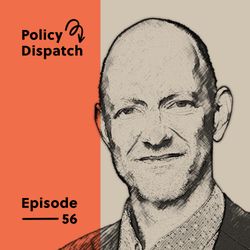
55. Set a course for net-zero!
31:39||Season 1, Ep. 55Download our award-winning app and enjoy access to all exclusive features. Click here to access on Apple or Android.The shipping sector is aiming to go net-zero by 2050. But to hit that lofty target, a number of policies will have to be implemented in order to get cleaner-burning fuels into circulation. It requires a complete renewal of the industry’s way of doing business but progress is being made. Talks at the International Maritime Organisation in April resulted in an agreement on a number of measures that should help reduce emissions. Jesse Fahnestock, Director of Decarbonisation at the Global Maritime Forum (GMF), joins this episode to explain what was agreed, how it will affect the industry and what the next steps look like. Enjoy the discussion!Download our award-winning app and enjoy access to all exclusive features. Click here to access on Apple or Android.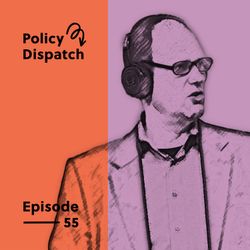
54. Blowing wind back on course
21:18||Season 1, Ep. 54Download our award-winning app and enjoy access to all exclusive features. Click here to access on Apple or Android.Decarbonisation objectives rely heavily on offshore wind providing cheap green electricity to power homes, infrastructure and businesses. Turbines are being built out at sea at pace but more effort is needed in order to hit Europe’s lofty goals. A recent bumpy patch of uncertainty has held the sector back to an extent and now the best way forward is being charted by the industry. Jakob Forman, lead regulatory advisor at Ørsted joins the show to share the findings of a new study aimed at proposing solutions to some of the sector’s main challenges. Jakob sat down with Sam at WindEurope’s recent annual conference in Copenhagen. Enjoy the discussion!Download our award-winning app and enjoy access to all exclusive features. Click here to access on Apple or Android.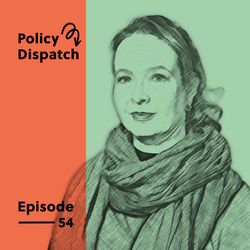
53. Scandinavia’s secret success story
37:21||Season 1, Ep. 53Download our award-winning app and enjoy access to all exclusive features. Click here to access on Apple or Android.Most of Finland’s electricity is sourced from carbon neutral energy sources as the country aims to go completely net-zero by 2035. So great are its decarbonisation ambitions that Finland wants to be carbon negative by 2050. Helena Sarén, head of the Zero Carbon Future Mission at Business Finland joins the Policy Dispatch to lift the lid on how Finland has managed to steal such an impressive green march on other European countries. Enjoy the discussion!Download our award-winning app and enjoy access to all exclusive features. Click here to access on Apple or Android.
52. Africa’s blank building canvas
26:39||Season 1, Ep. 52Download our award-winning app and enjoy access to all exclusive features. Click here to access on Apple or Android.Buildings are at the heart of the energy transition. They soak up a lot of energy and spew out a lot of emissions. Improving the existing stock and making sure new builds are as green as possible is crucial to our global decarbonisation journey. Across the continent of Africa, this challenge is playing out. New builds are the focus and policies are being developed constantly to weave sustainability factors into building codes and practices. Mugure Njendu, Africa Programs Lead at the Global Buildings Performance network, joins the Policy Dispatch to explain why the continent has a massive opportunity to build better and not make the same mistakes European countries have made in the past. Enjoy the discussion!Download our award-winning app and enjoy access to all exclusive features. Click here to access on Apple or Android.